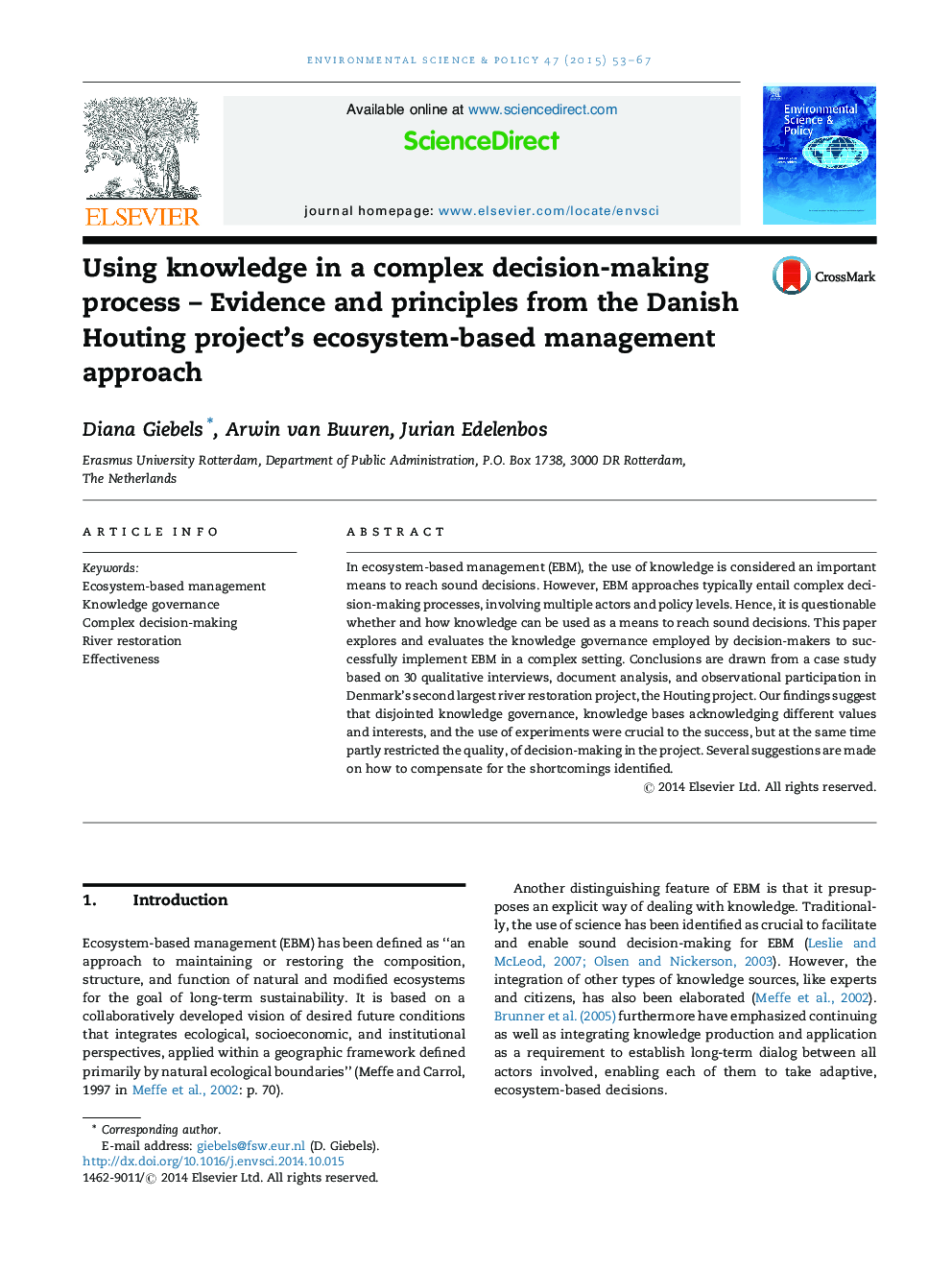| Article ID | Journal | Published Year | Pages | File Type |
|---|---|---|---|---|
| 7467551 | Environmental Science & Policy | 2015 | 15 Pages |
Abstract
In ecosystem-based management (EBM), the use of knowledge is considered an important means to reach sound decisions. However, EBM approaches typically entail complex decision-making processes, involving multiple actors and policy levels. Hence, it is questionable whether and how knowledge can be used as a means to reach sound decisions. This paper explores and evaluates the knowledge governance employed by decision-makers to successfully implement EBM in a complex setting. Conclusions are drawn from a case study based on 30 qualitative interviews, document analysis, and observational participation in Denmark's second largest river restoration project, the Houting project. Our findings suggest that disjointed knowledge governance, knowledge bases acknowledging different values and interests, and the use of experiments were crucial to the success, but at the same time partly restricted the quality, of decision-making in the project. Several suggestions are made on how to compensate for the shortcomings identified.
Related Topics
Physical Sciences and Engineering
Energy
Renewable Energy, Sustainability and the Environment
Authors
Diana Giebels, Arwin van Buuren, Jurian Edelenbos,
